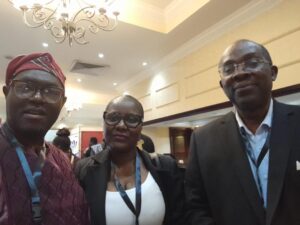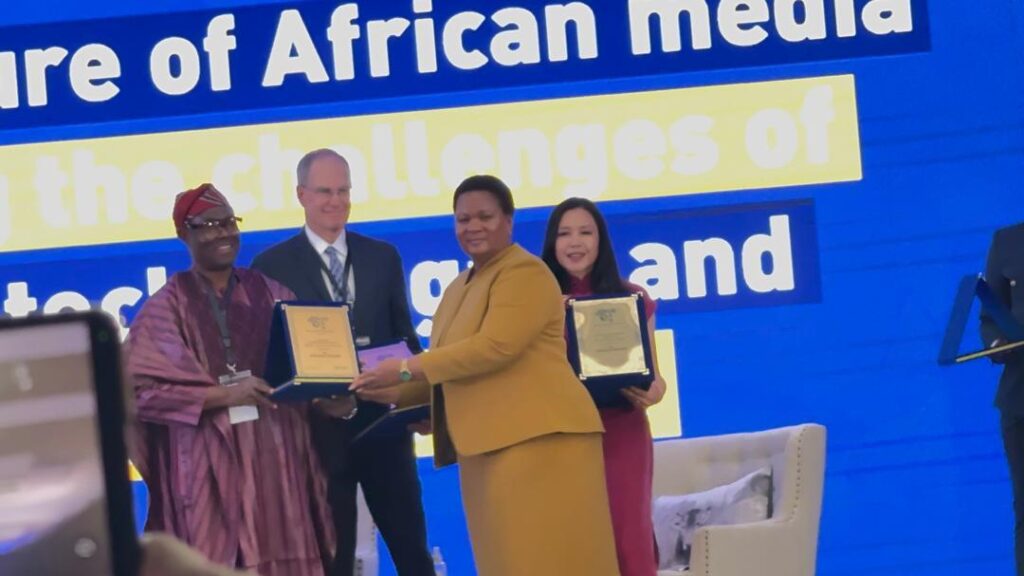The African Union of Broadcasting has formally admitted and presented certificate of membership to five new members at its 15th general assembly and conference in Gaborone, Botswana.
The five new members are Muslim Television Ahmadiyya, MTA Africa, China Media Group, National Radio and Television Administration of China, Russia Today, SPUTNIK ànd Voice of America, VOA.
The impressive ceremony was conducted by the Director General African Union of Broadcasting, Gregory Ndjaka.
Representatives of the new five media organisations received the membership certificate from the permanent secretary of government communications, Madam Montlenyane Baaitse and other leadership of the AUB.
As a member of AUB, the five media organisations would have the opportunity to share their content with various topics of interest in Africa with other broadcasting stations in the continent, participating in training and other programmes.
In 2022, MTA Africa applied for membership of AUB, in Abuja, Nigeria.
The theme of the AUB conference was the future of African Media facing the challenges of new technologies and climate change. Top media executives and academics as well as development partners attended the three-day conference, declared open by the Vice President of Botswana, Slumber Tsogwane.

Opportunities of AI
Members of the AUB, identified Artificial Intelligence, AI, as an effective tool with high human interactions for content production, sharing, analysis, moderation and measurement of audience responses or preferences. Three major AI applications namely AI News Reading, AI Translation, and AI Video editing were drivers of this transformation. Accordingly, members shared their experiences with Artificial Intelligence, AI, in the newsroom and identified two major new media platforms needed to actualise the great opportunities of AI. These are the effective deployment of YouTube and Podcast channels.
AI Threats
Despite the advantages of AI deployment in the newsrooms, major threats to the media ecosystem were pointed out. These are Deep fakes, lack of respect for intellectual property rights, network barriers in the remote areas of Africa, inadequate AI manpower development and insignificance of AI market share in Africa. Currently, it was discovered the meagre 2.5 per cent of the AI market is from Nigeria, Kenya and South Africa.
READ ALSO: DAAR Group @ 30: A mighty, sheltering oak that must live forever


